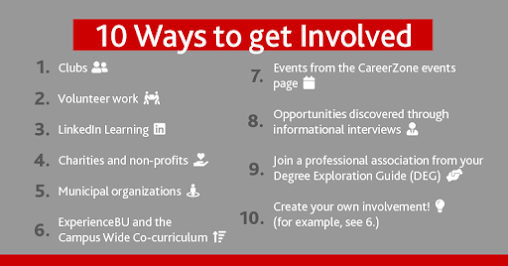Your journey into career exploration may seem overwhelming at first, but do not fret: CareerZone is here to alleviate these feelings of uncertainty.
Did you know that you spend about a third of your life working? Did you also know that vocational wellness is one of eight facets of emotional health? Therefore, ensuring job satisfaction is an important aspect of your overall well-being.
Career Education recommends Brock University students allocates 2-4 months' time to the exploration process. If you are starting from the ground up, despite many years of study, there is no better time to begin than the present.
A common starting place is getting to know yourself. Take inventory of your interests, skills, values, talents, education, and experiences. This will help you to gain a greater understanding of potential career pathways, the strengths you can bring to those careers, and can identify skills and knowledge areas you might need to develop. It will build the structure for the mission and vision of your career.
Next, you can discover new possibilities -- and trust us, there are many! Canada has over 200 million job titles, so the goal here is to garner your focus on opportunities that reflect on who you are. At this stage, you will discover a range of additional experiences you could acquire.
Adding experiences to your resume will always be a good idea and there are endless avenues to do so. Here is a non-exhaustive list of ways to experience more, especially at Brock and in remote environments:
The last aspect of the Career Development Model is one that students often jump into head first: activate your plan. For analogy purposes, it is similar to writing an essay from scratch before conducting the necessary research to begin. In this phase, you will be readily prepared for active job search by polishing your resume, cover letter and interview skills. Keep in mind that we recommend you foster conversations about your career aspirations with family members, friends
and acquaintances whenever you see fit. You never know who knows who, and those people may open the door to new opportunities.
Finally, actively embrace failure as a learning opportunity for feedback. Remember to be curious, persistent, flexible, and optimistic. If you take a manageable risk today, it may evolve into an experience that shapes your tomorrow.
One last point - stay organized and ask for help. We are here to help you!
Written by Lisa Brown, Career Assistant and Blog Manager
Edited by Kara Renaud, Supervisor of Career Education, CCEE Department


No comments:
Post a Comment